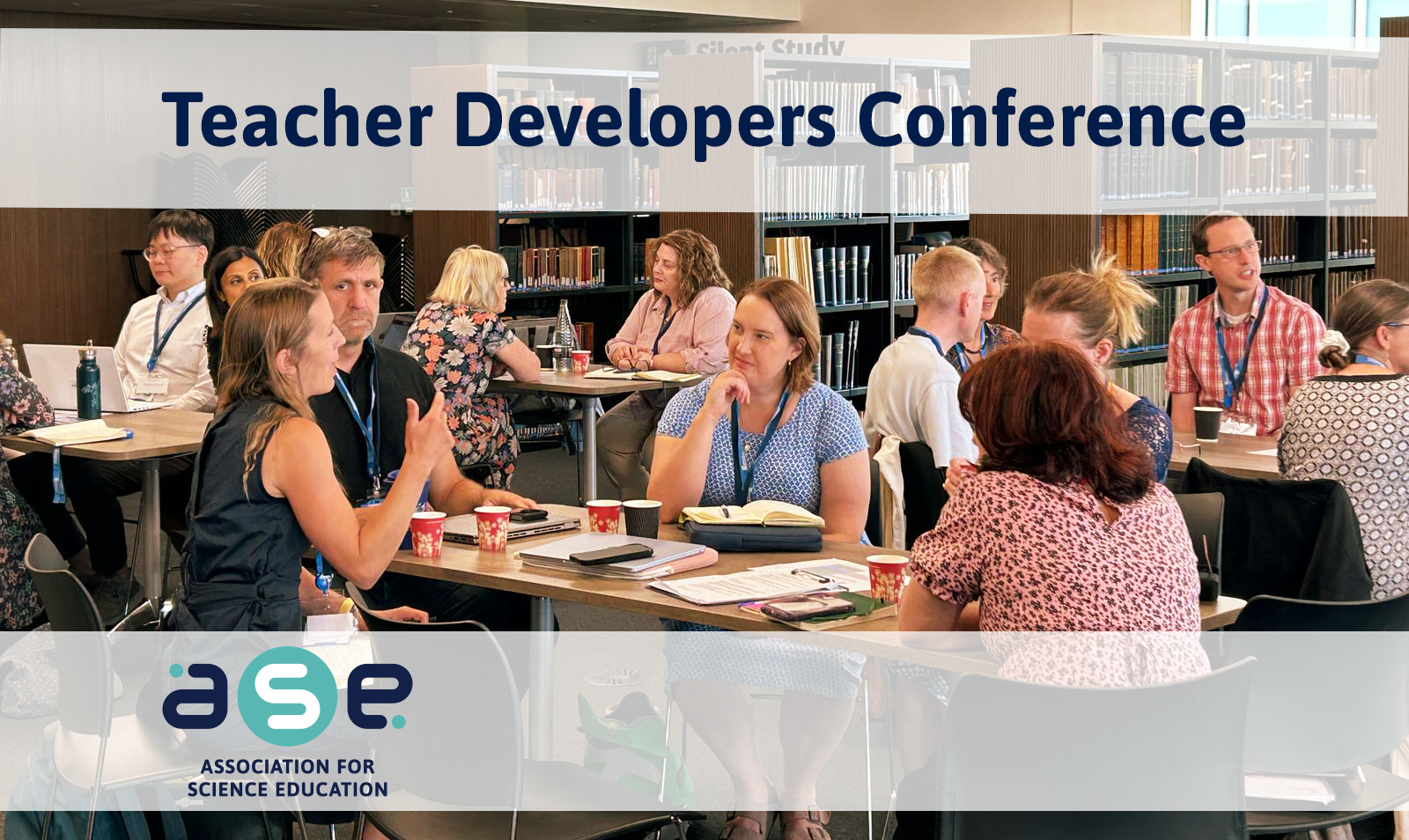
This Teacher Developer Conference editorial special showcases summaries from the keynote speakers alongside reflections from attendees that capture the energy and impact from the day.
The ASE supports all those involved in science education ranging from technicians, trainee teachers, experienced pre-school to higher education educators and those involved with the continuing professional development of teachers. This active membership body recognises that professional development is central to this support and that this needs to include purposeful specialist input and regular networking opportunities that foster communities of practice that endure.
The ASE Teacher Developer group hold an annual one-day conference in the summer. This ASE Teacher Developers Conference, kindly sponsored by Ogden Trust, is our showpiece event for all those involved in teacher development, including initial teacher education, curriculum development, subject leadership and professional development. The intention is to bring together anyone involved in developing science teachers (beginning and experienced) across all age phases (3-18 years old) to reflect upon current challenges and anticipate future opportunities in science teacher education.
a chance to learn, grow and network with colleagues involved in developing teachers
For 2025, this event took place at Northampton University on Friday 27th June. The conference did not disappoint. The Teacher Developer conference working group coordinated a rich range of input from insightful speakers who raised the bar and broadened our thinking about science teacher education. It was a quality day- a slick programme with just the right level of input and discussion. Themes included evidence-informed practice, the future of science education and climate science. It was a chance to learn, grow and network with colleagues involved in developing teachers.
This Teacher Developer 2025 conference STE editorial special showcases summaries from the keynote speakers alongside reflections from attendees that capture the energy and impact from the day.
Rethinking a science curriculum for social justice
By Haira Gandolfi, Associate Professor, University of Cambridge
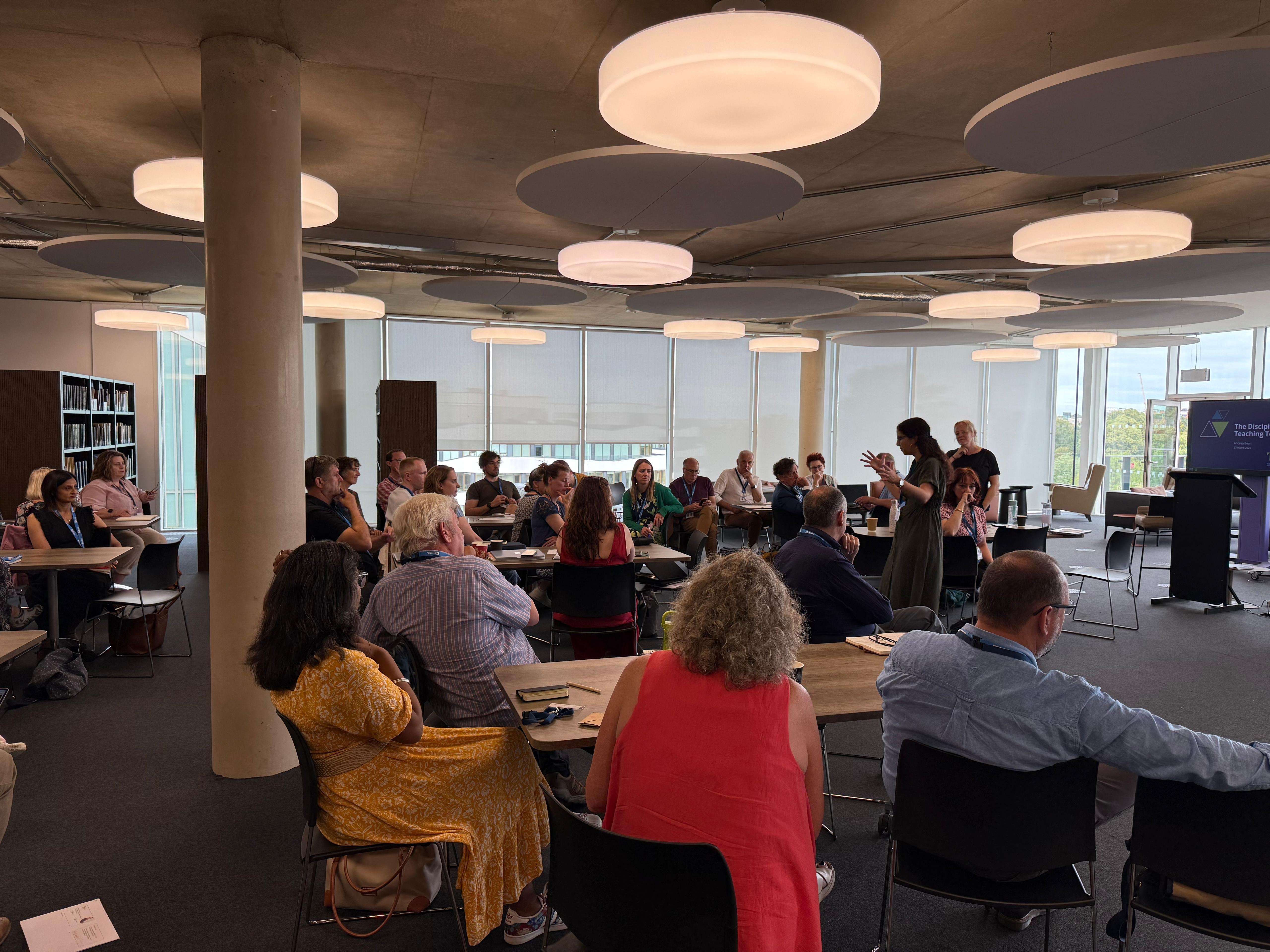 In this talk, we explored historical and contemporary connections between science and issues of social justice. We started with a brief review of how the area of Nature of Science (NOS) foregrounds scientific development and scientific communities as intrinsically intertwined with epistemic and socio-institutional elements (Erduran & Dagher, 2014), as noted by Turner decades ago: “The intellectual content, methodological orientation, and professional organization of science cannot be separated from its social and cultural environment” (1980, p. 589). Cases often referred to as having a ‘socio-scientific nature’, such as the development and deployment of nuclear bombs during the Second World War, the Cold War space race, the COVID-19 pandemic (including health-related disparities), climate degradation, natural resources access and management (including instances of environmental injustices), all illustrate such aspects of the NOS.
In this talk, we explored historical and contemporary connections between science and issues of social justice. We started with a brief review of how the area of Nature of Science (NOS) foregrounds scientific development and scientific communities as intrinsically intertwined with epistemic and socio-institutional elements (Erduran & Dagher, 2014), as noted by Turner decades ago: “The intellectual content, methodological orientation, and professional organization of science cannot be separated from its social and cultural environment” (1980, p. 589). Cases often referred to as having a ‘socio-scientific nature’, such as the development and deployment of nuclear bombs during the Second World War, the Cold War space race, the COVID-19 pandemic (including health-related disparities), climate degradation, natural resources access and management (including instances of environmental injustices), all illustrate such aspects of the NOS.
In particular, many of these examples showcase how scientific development and knowledge has deep connections with financial systems, political power structures, social values, etc. (Erduran & Dagher, 2014). And, from this understanding, science’s connections with social justice issues emerge through examining, for instance:
- How global/intercultural networks of natural resources, and of knowledge and practices production and sharing were central to the rise of the traditional science we find in our curricula, but are often invisible in how we tell stories about scientific development in our science teaching and learning practices.
- How these exchanges and collaborations can involve forced, oppressive and unequal exploitation of knowledge, people and natural resources.
- How science’s products and processes can have different implications and are experienced differently by different communities and groups (e.g., women, Black, Brown and Indigenous peoples, etc.).
- How scientific communities can be seen and lived differently by these different communities and groups.
the science curriculum should not only address social justice issues through the perspective
of representation but also through those of critical understanding and participation
From this point, we then looked at the concept of ‘curricular justice’ (Mills et al., 2022, p. 353), which proposes that embedding concerns about social justice into teachers’ curriculum-making has to go beyond “providing equal opportunities” to students and being “solely about outcomes and visibility of marginalised groups” in science classes. It necessitates science curriculum-making that not only addresses social justice issues through the perspective of ‘representation’ – such as diversifying narratives and examples of scientists from marginalised groups – but also through the perspectives of ‘critical understanding’ and ‘participation’. That is, a science curriculum-making that fosters reflexive understanding of socially unjust cultural, historical and knowledge legacies resulting from scientific developments, practices, communities, and that seeks to develop participatory ways of addressing such legacies to create a more socially just (science) world (Gandolfi, 2024). Some elements to be considered in such reflexive science curriculum-making can be:
1. Understanding science as intertwined with social, political and moral legacies and obligations.
2. Recognising that complex socio-historical processes impact the production of knowledge and technologies in science, who benefits (and who does not) from such knowledge and who is supported to be part of these knowledge communities.
3. Addressing the insularity of narratives about science, scientific development and voices as emanating only from the Global North, and engaging with cases, examples, voices and experiences of communities that have been most impacted by challenges and injustices emerging from science.
Lastly, we closed the session considering ways of working in our science teacher (initial and continuous) professional development curricula to foster science teachers’ engagement with such ideas, with some ongoing developments in the English context being signposted, such as:
- England’s Curriculum and Assessment Review: Interim Report shows some new degree of support to ‘addressing global and social change’ and to ‘diversity of content’, but important to consider how other teacher education-related documents (such as the Teachers’ Standards and the Initial Teacher Training and Early Career Framework) might be (or not) in line with such goals.
- NEU Framework for developing an anti-racist approach (in schools).
- Anti-racism framework for Initial Teacher Education/Training.
Erduran, S., & Dagher, Z. R. (2014). Reconceptualizing the Nature of Science for Science Education. Springer Netherlands.
Gandolfi, H. E. (2024). (Re) considering nature of science education in the face of socio-scientific challenges and injustices: insights from a critical-decolonial perspective. Science & Education, 1-27. https://doi.org/10.1007/s11191-024-00536-w
Mills, M., Riddle, S., McGregor, G., & Howell, A. (2022). Towards an understanding of curricular justice and democratic schooling. Journal of Educational Administration and History, 54(3), 345-356. https://doi.org/10.1080/00220620.2021.1977262
Turner, F. M. (1980). Public science in Britain, 1880-1919. Isis, 71(4), 589-608.
"I enjoyed networking and discussing ideas with others attending the ASE teacher developer conference. The conference drew my attention to the national curriculum review coming out in the autumn. I need to keep an eye out for it. Haira mentioned a few notes from a preview she has seen about addressing global and social change and there being diverse contents, which is relevant for my work."
Cathy Priest, Training Lead, Faraday Institute for Science and Religion
The discipline of teaching teachers
By Andrea Bean - Research and Evaluation Manager, Teacher Development Trust (TDT)
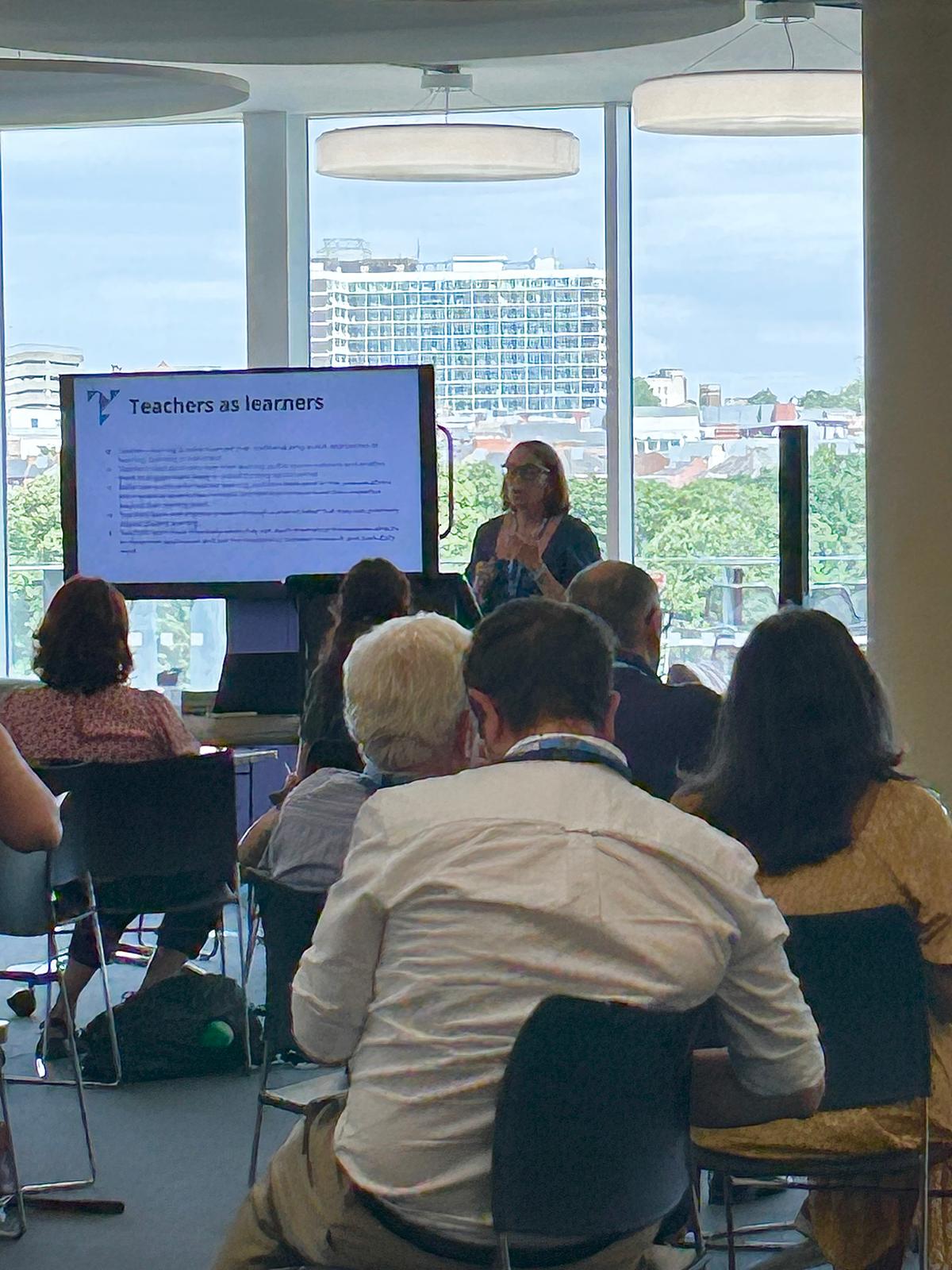 Is there something unique about the teaching of teachers?
Is there something unique about the teaching of teachers?
This is something the TDT has been exploring in depth, working alongside an Expert Working Party of professionals from across ITT, within School Hubs, universities and organisations focused on teacher education.
In the classroom we refer to pedagogy to describe specific expertise required to teach children - encompassing both subject knowledge and the practical skills needed. Having this shared language helps sharpen our thinking and enables collective improvement across schools. However, when it comes to teaching teachers, we lack a commonly understood term and any associated professional knowledge that might underpin it.
Too often, professional development is seen as a transactional process - a series of sessions, inputs, or workshops delivered to teachers with the expectation that they will change what is potentially deeply embedded in their practice. However, we know that it is far more complex than this. Teaching education professionals requires more than repurposing classroom pedagogy for adults, it requires a deep understanding of how teachers learn, what motivates them, and how professional learning translates into sustained classroom impact.
Through insights gathered from TDT’s Expert Working Party, and with input from practicing teachers and leaders across the sector, we have seen growing recognition that teacher learning is non-linear, socially constructed, and context dependent. It is iterative, messy, and often deeply emotional.
what has emerged is the importance of understanding teachers as learners in their own right
One powerful theme arising from the work was the importance of school culture for sustained development. Research by Kraft and Papay (2014) shows that teachers improve far more in schools with strong professional learning cultures which in turn translates to better outcomes for pupils. This requires attention to be paid to the conditions that allow teacher learning to flourish. Teachers learn more effectively when there is trust, constructive feedback and a sense of shared responsibility.
What has also emerged is the importance of understanding teachers as learners in their own right. Teaching is one of the few professions where, as a professional, they have been through the system themselves. They have been child learners, adult learners and are now teacher learners. This carries with it a significant amount of experience, values, ideas - all of which impact the way they then engage with their own learning. Combine this with experience and context, that means a one-size fits all will only ever have limited impact on actual learning that sticks.
Importantly, this work is not about prescribing a single model. TDT’s goal is to develop a shared language and invite exploration and challenge from those across the sector. The aim is to spark a profession-wide conversation about what needs to be considered when working with teachers as learners and what high-quality, long-term teacher learning can look like -across phases, subjects, and contexts.
This shift demands that we ask not just ‘What should teachers learn?’, but also:
- What do we understand about how teachers learn most effectively?
- How can we apply this understanding when designing and facilitating teacher learning?
- How are we supporting that learning to stick?
How are we empowering teachers as co-designers and owners of their own development, not just recipients?
Kraft, M.A. and Papay, J.P. (2014). Can professional environments in schools promote teacher development? Explaining heterogeneity in returns to teaching experience. Educational evaluation and policy analysis, 36(4), pp.476-500. https://doi.org/10.3102/0162373713519496
Expert working party - 1st Blog update
TDT’s Culture of Improvement Paper
https://my.chartered.college/impact_article/a-culture-for-improvement/
"Listening to the first session from Haira, triggered nostalgic memories of my initial teacher education. I trained at Homerton, Cambridge and when she mentioned her lectures/session on the social justice of science, I remembered the similar session I also had 30 years ago. The session provided an opportunity to really delve into the philosophy of science teaching.
The current reality in the SCITT I work for is that we do not have similar sessions and so what is the effect on our ITE trainees? Where do they have opportunities to develop their own identity and self-efficacy as a teacher? Without an understanding of the fundamental place of practical work, and the social aspects of knowledge creation in science, do some science teachers not value practical work in their chase of good grades for students and so have reduced the amount of practical work they teach?"
Alastair Gittner, Chair of ASE Research Committee and SCITT trainer
The future of science education: a policy perspective
Peter Finegold, Head of Policy – Education and Skills, The Royal Society
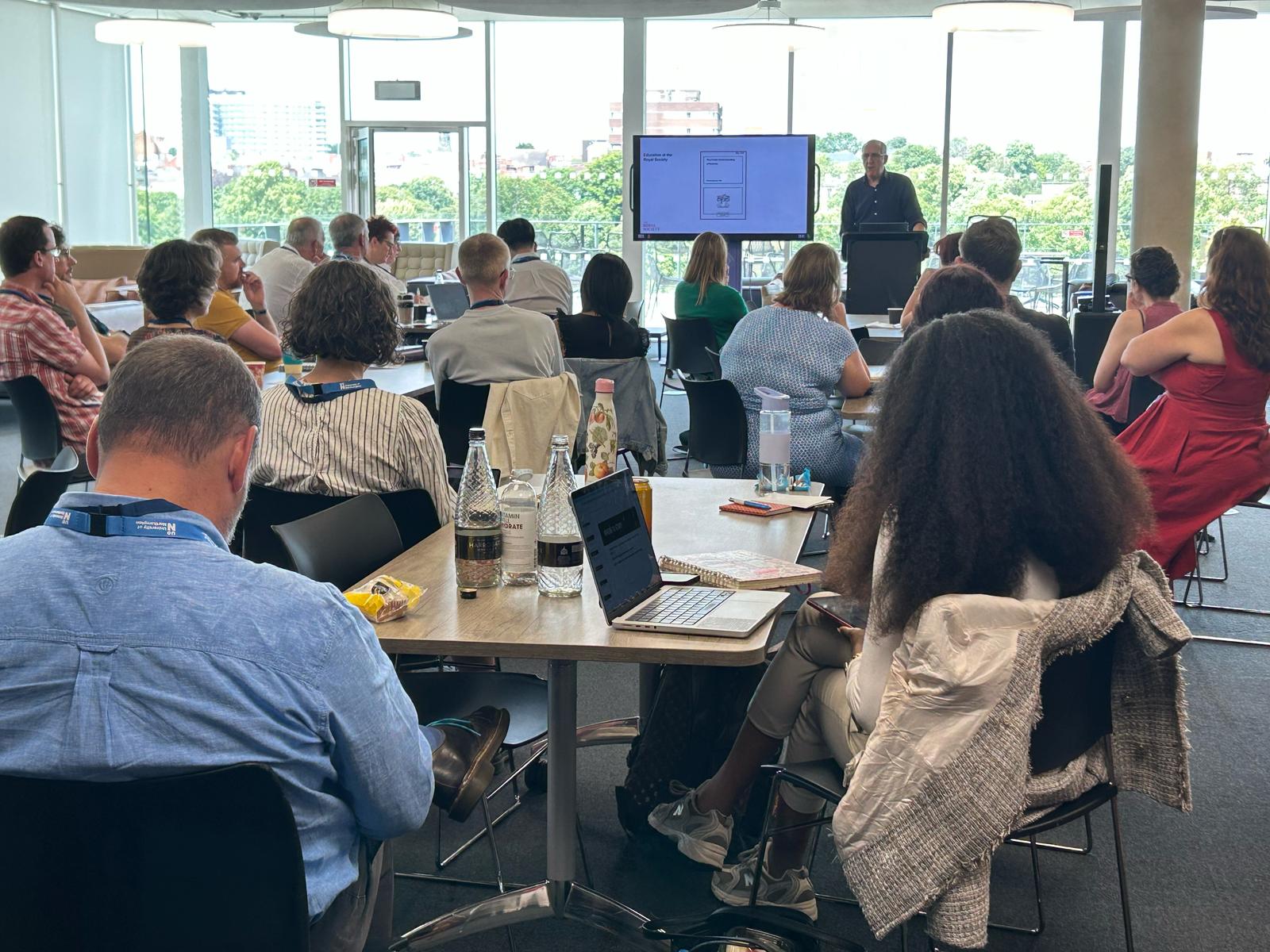 Peter Finegold’s keynote refocussed our attention towards some of the bigger questions; what is education for? What do young people need to know and do?
Peter Finegold’s keynote refocussed our attention towards some of the bigger questions; what is education for? What do young people need to know and do?
As society faces rapid technological change and environmental pressures, the education system must keep pace – equipping young people not only to understand the world around them but to help shape its future. For those involved in teacher training and professional development, the challenge is clear: to support educators in fostering subject knowledge for economic growth; and cultivating the curiosity, critical thinking and values needed for citizenship.
The Royal Society’s mission – to recognise, promote and support excellence in science and to encourage the development and use of science for the benefit of humanity – frames our work across policy and education. Science education must serve a dual role: preparing future researchers and innovators while equipping all learners with the knowledge and skills to engage thoughtfully with issues such as climate change, health challenges and emerging technologies.
The Royal Society advocates for science education that combines conceptual understanding with the ability to question, apply and evaluate knowledge. Both recall and reasoning matter, but recent approaches to assessment have often favoured the former. A more balanced model – acknowledging the importance of process and wider skills – would better reflect the aims of meaningful science learning.
What is education for? What do young people need to know and do?
Mathematics and data literacy underpin not only science but a wide range of disciplines and careers. Reform in this area must focus not only on content but also on relevance – helping learners see how mathematical reasoning connects to real-world challenges. Artificial intelligence is already shaping scientific research and daily life in profound ways. It is increasingly important that students explore how it works and consider its wider social impacts.
Science education also has a role in helping students respond to long-term environmental challenges. But beyond sustainability, we must now talk about adaptability and regeneration. The future will demand tough decisions – ecological, political and economic – that cannot be made simply by being able to explain the carbon cycle alone. Education should prepare learners to engage critically with these issues and contribute to shaping the response.
The Labour government’s opportunity mission seeks to reduce inequality, but this cannot be achieved without equitable access to high-quality science education. A system that helps all learners ‘see themselves in science’ also supports national growth – another of the UK government’s stated goals. Innovation depends not only on technical skills but also on the diversity of perspectives drawn from across society.
This is one of many reasons why the science teaching workforce is so important. Persistent shortages – particularly in physics and chemistry – raise fundamental questions about the sustainability of the current model. Is it time to think differently? Structural changes such as more flexible teaching careers and alternative employment pathways may now be worth exploring. While AI is no substitute for pedagogy, it has great potential to assist teachers in managing the growing complexity of the classroom. All of these developments are not about replacing teachers but about supporting them – and making the profession more resilient and attractive.
Professional development is a core part of teacher professionalism, yet its purpose is often contested. For some, CPD is viewed with some scepticism…closely tied to the implementation of government policy initiatives; for others, it represents a vital part of career-long professional growth and is as intrinsic to the role as planning lessons or marking work. Subject-specific CPD is often seen as a luxury when frontline budgets are under pressure - which of course is always! But access to well-designed, relevant CPD contributes directly to teacher expertise, confidence, subject leadership and staff retention. Teacher developers continue their vital role in sustaining and embedding this work, as part of a broader understanding of teaching as a continuously developing and intellectually demanding profession.
The Royal Society continues to advocate for a bold, long-term vision for science education – one that reflects the needs of future learners and society. Achieving this vision depends on building a coalition around a shared philosophy, with everyone involved in shaping science education thinking and practice. Crucially, it relies on those who work most closely with teachers. Teacher educators play a vital role in connecting long-term goals with everyday classroom realities, and in strengthening the professional capacity of teachers to lead meaningful, lasting change. As we look ahead, their work remains essential – not only in supporting today’s educators, but in shaping the future of science education itself.
Vision for science, mathematics and computing education | Royal Society
Why reforming education should start with boosting the status of teachers | Royal Society
Science education for a research and innovation economy | Royal Society
A new approach to mathematical and data education: Executive summary
Royal Society response to Curriculum and Assessment Review | Royal Society
"Personally, I came away fresh with ideas to take back to my science team especially around how to refine our science provision for trainee teachers at the Nottingham Institute of Education, NTU. One idea that stuck with me: telling a richer, more nuanced story of Darwin’s scientific legacy. I left the conference feeling nourished from the quality of thinking presented across the day and motivated to keep making a difference with our trainee teachers."
Natasha Serret, Associate Professor of Science Education, NTU and Editor for ASE Science Teacher Educator online hub
Annual Conference 2026
 ASE’s Annual Conference is at the University of Nottingham from 8th to 10th January 2026. On Thursday 8th January we have a programme specially curated for teacher developers working in both primary and secondary education.
ASE’s Annual Conference is at the University of Nottingham from 8th to 10th January 2026. On Thursday 8th January we have a programme specially curated for teacher developers working in both primary and secondary education.
Highlights include:
- A keynote by Jon Hutchinson on The Curriculum Review
- Primary and Secondary panel sessions exploring leading through the changes and challenges we face in science education
- Plus a host of sessions and workshops, all chosen to support teacher developers in their roles
STE Hub
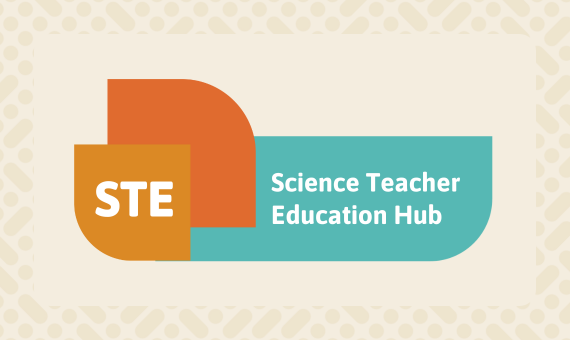 The STE Hub is a purposeful online space that shares the perspectives of science teacher educators, experienced teachers and trainee teachers. Visit the STE Hub now to read the latest articles, listen to new podcast episodes and utilise the STE archive to stay up to date with discussions around science teacher education.
The STE Hub is a purposeful online space that shares the perspectives of science teacher educators, experienced teachers and trainee teachers. Visit the STE Hub now to read the latest articles, listen to new podcast episodes and utilise the STE archive to stay up to date with discussions around science teacher education.
STE Hub is a member subscription product and costs £24.99 per year. You can add STE Hub to your membership through your 'My Preferences' section on your account page once logged in.
